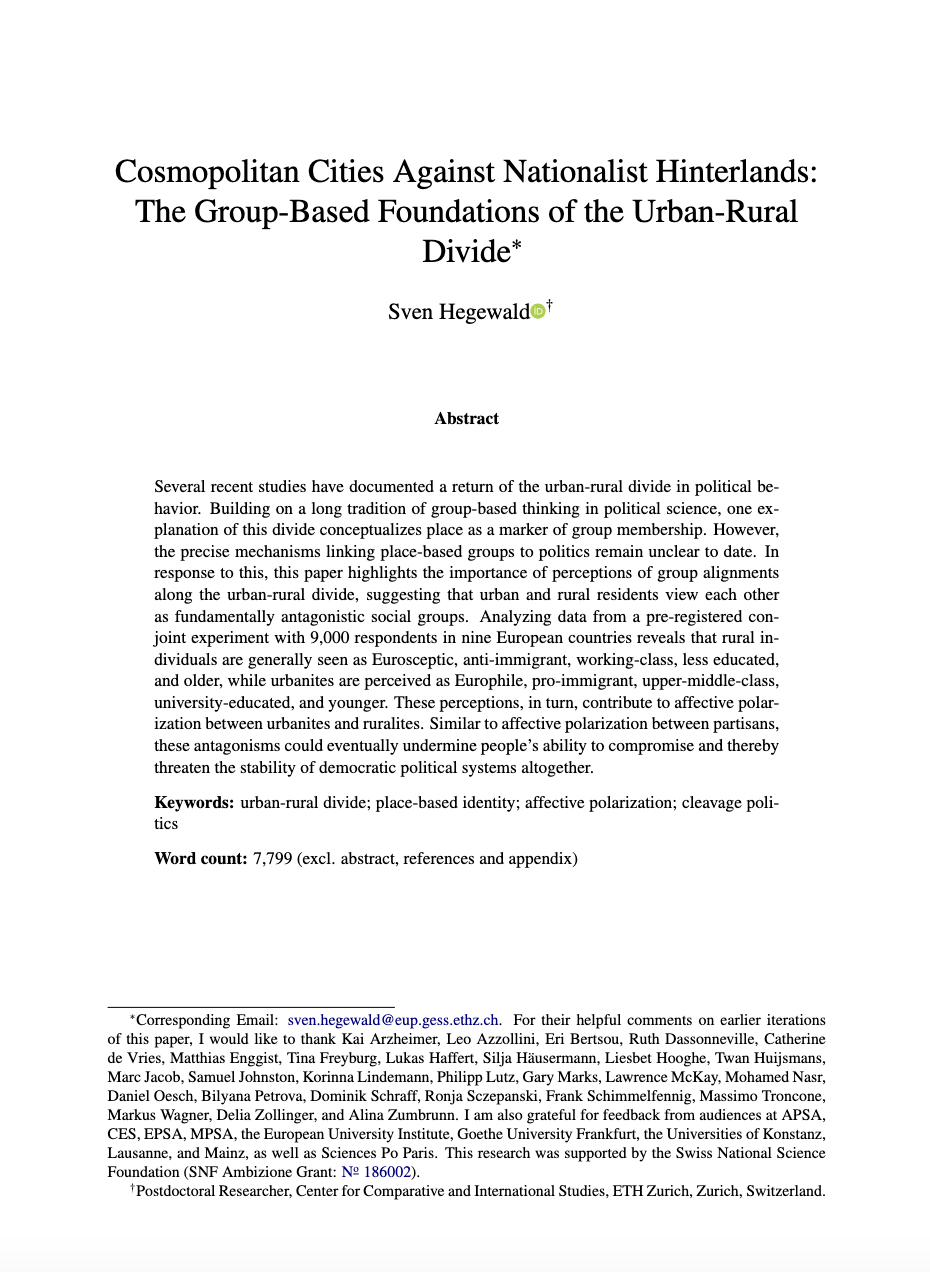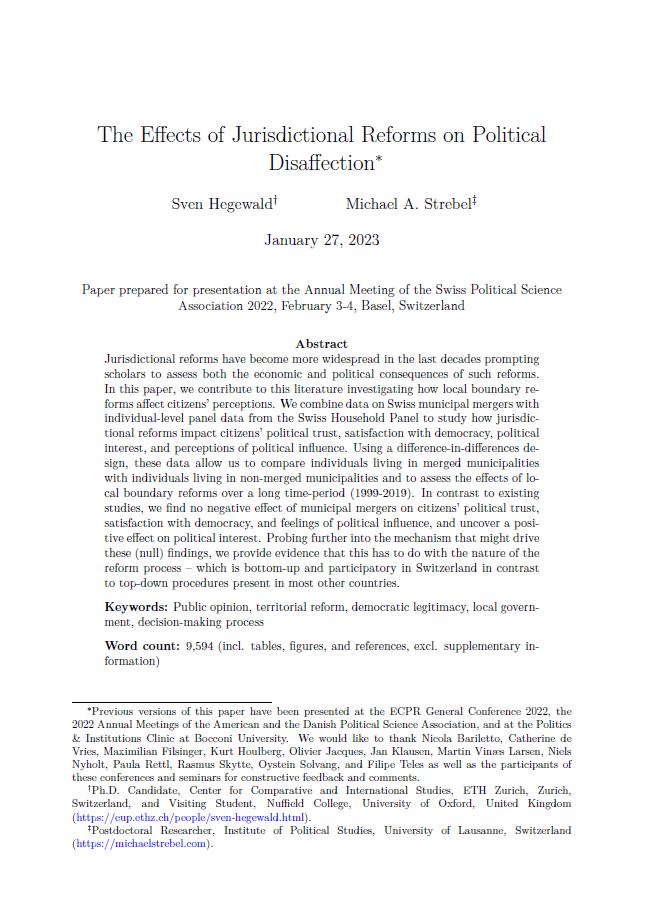working papers
2024
-
 Cosmopolitan Cities Against Nationalist Hinterlands: The Group-Based Foundations of the Urban-Rural DivideSven Hegewald2024
Cosmopolitan Cities Against Nationalist Hinterlands: The Group-Based Foundations of the Urban-Rural DivideSven Hegewald2024Several recent studies have documented a return of the urban-rural divide in political behavior. Building on a long tradition of group-based thinking in political science, one explanation of this divide conceptualizes place as a marker of group membership. However, the precise mechanisms linking place-based groups to politics remain unclear to date. In response to this, this paper highlights the importance of perceptions of group alignments along the urban-rural divide, suggesting that urban and rural residents view each other as fundamentally antagonistic social groups. Analyzing data from a pre-registered conjoint experiment with 9,000 respondents in nine European countries reveals that rural individuals are generally seen as Eurosceptic, anti-immigrant, working-class, less educated, and older, while urbanites are perceived as Europhile, pro-immigrant, upper-middle-class, university-educated, and younger. These perceptions, in turn, contribute to affective polarization between urbanites and ruralites. Similar to affective polarization between partisans, these antagonisms could eventually undermine people’s ability to compromise and thereby threaten the stability of democratic political systems altogether.
2023
-
 The Effects of Jurisdictional Reforms on Political DisaffectionSven Hegewald, and Michael A. Strebel2023
The Effects of Jurisdictional Reforms on Political DisaffectionSven Hegewald, and Michael A. Strebel2023Jurisdictional reforms have become more widespread in the last decades prompting scholars to assess both the economic and political consequences of such reforms. In this paper, we contribute to this literature investigating how local boundary reforms affect citizens’ perceptions. We combine data on Swiss municipal mergers with individual-level panel data from the Swiss Household Panel to study how jurisdictional reforms impact citizens’ political trust, satisfaction with democracy, political interest, and perceptions of political influence. Using a difference-in-differences design, these data allow us to compare individuals living in merged municipalities with individuals living in non-merged municipalities and to assess the effects of local boundary reforms over a long time-period (1999-2019). In contrast to existing studies, we find no negative effect of municipal mergers on citizens’ political trust, satisfaction with democracy, and feelings of political influence, and uncover a positive effect on political interest. Probing further into the mechanism that might drive these (null) findings, we provide evidence that this has to do with the nature of the reform process – which is bottom-up and participatory in Switzerland in contrast to top-down procedures present in most other countries.